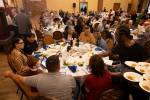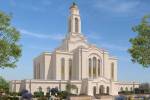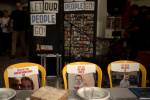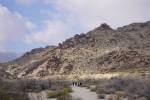‘Unholy Business’ and greed in the Holy Land
 There is an illness that sometimes afflicts visitors to the Holy Land. Every year, a few become overwhelmed as they tread the ancient pavement. They fall victim to a form of psychosis — it’s called Jerusalem Syndrome — and can be found wandering the city thinking they are King David, the Virgin Mary, John the Baptist or one of Jesus’ disciples. So they are taken in hand and gently treated by doctors specially trained to deal with this strange malady, and soon restored to normal.
There is an illness that sometimes afflicts visitors to the Holy Land. Every year, a few become overwhelmed as they tread the ancient pavement. They fall victim to a form of psychosis — it’s called Jerusalem Syndrome — and can be found wandering the city thinking they are King David, the Virgin Mary, John the Baptist or one of Jesus’ disciples. So they are taken in hand and gently treated by doctors specially trained to deal with this strange malady, and soon restored to normal.
The ancient land has a power far beyond its size — tiny Israel is a nation about the size of New Jersey. For some, the old groves and orchards, the winding alleys, the shadowy grottoes and ancient ruins are scenes of reverence. For others, this land so replete in faith and drama is a way to make money, to pluck the tourists, to manipulate history for mundane, secular reasons.
And sometimes someone comes along and wants it both ways.
Authorities allege that Israeli antiquities collector Oded Golan is such a man. He is on trial in Israel, accused of perpetrating what prosecutors say is the archaeological crime of the century. The story of the Jehoash Tablet is told in "Unholy Business: A True Tale of Faith, Greed & Forgery in the Holy Land" by Nina Burleigh (2008, Collins).
The Jehoash Tablet is a piece of sandstone upon which is inscribed in ancient Hebrew, using ancient Phoenician script, discussions of repairs to King Solomon’s Temple. The passage, if accurate, would appear to confirm the accuracy of passages in the Old Testament or Hebrew Scriptures book of 2 Kings. The political repercussions of the relic’s find would also be enormous, seeming to confirm the existence of Solomon’s Temple on Jerusalem’s Temple Mount. Muslims, for whom the Haram as-Sharif mosque is Islam’s third-holiest site, argue that a temple was never located there. The adjoining Western Wall, lone remainder of the Jewish Second Temple complex, is Judaism’s holiest site.
How Golan nearly succeeded in deceiving world-renowned experts — detectives say he and a talented carver took actual relics and ‘‘doctored’’ them by adding inscriptions or ancient symbols to them — and how authorities unraveled the scheme is a fascinating tale. It isn’t over, either — Golan maintains his innocence and the trial is still ongoing.
But for a scam to work, there have to be the scammed. And, as Burleigh shows, there are collectors who seem to have more money than sense, who want so much to believe and to have evidence of their belief, who for love or faith or reasons of their own ask few questions as they collect and hoard and, in their minds, protect, tangible evidence of the holy. Without those people, antiquities fraud would not be the profitable undertaking it unfortunately is.
"Unholy Business" is a great read, a real-life whodunit. It will give you pause the next time, on vacation at a market stall, you reach for your wallet to buy that ‘‘ancient’’ coin or piece of pottery. And you’ll never peer into those glass cases in museums without thinking, ‘‘I wonder ...’’
And in some ways, that’s a shame.

















